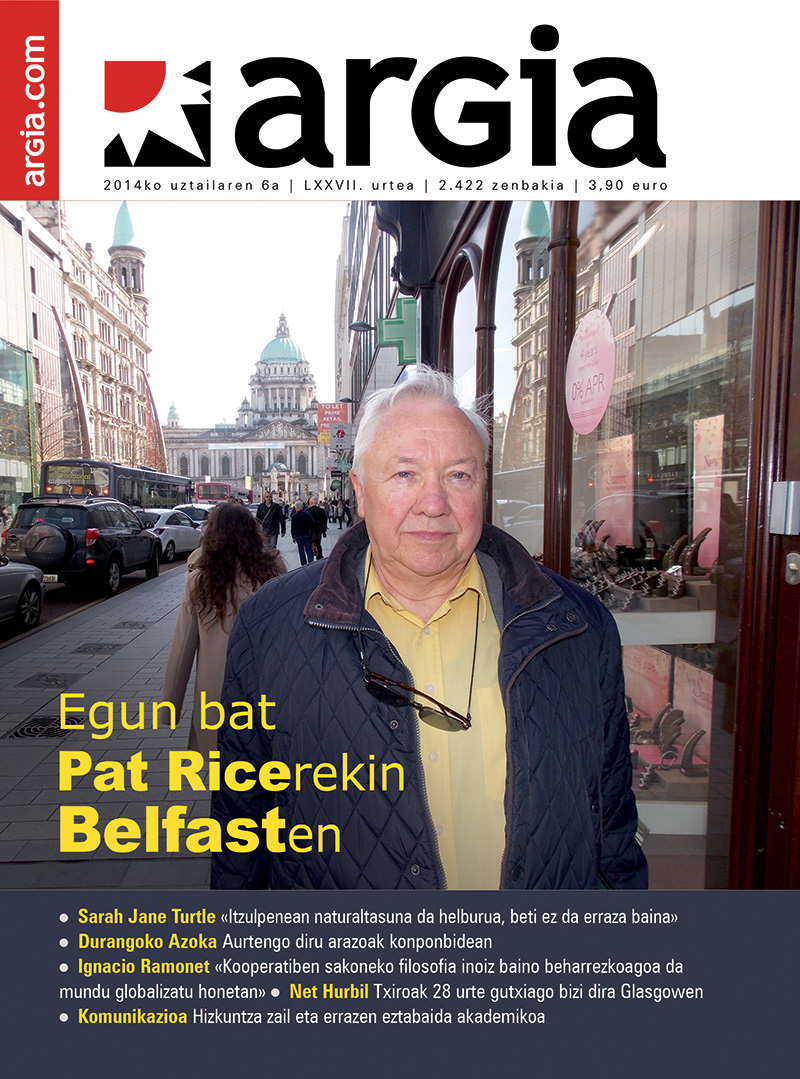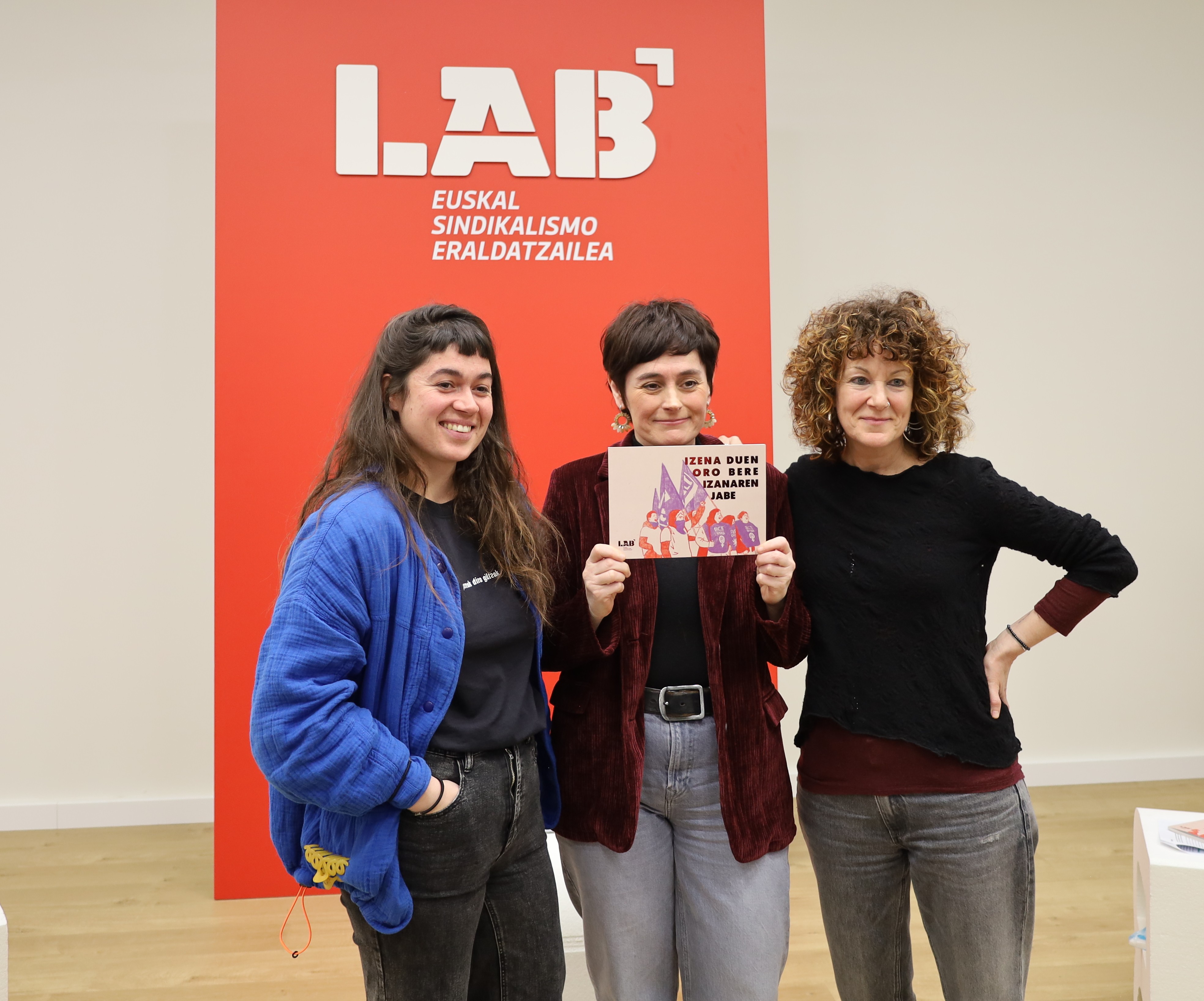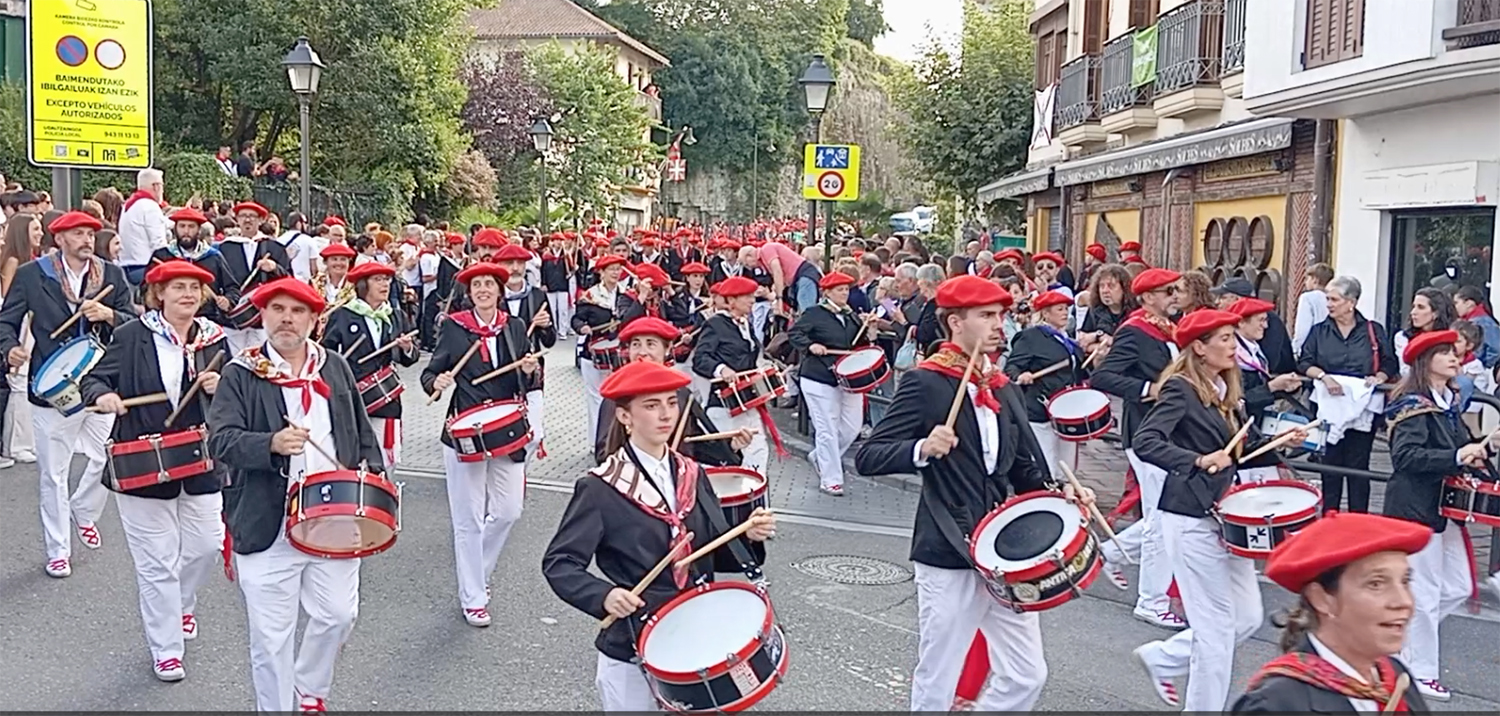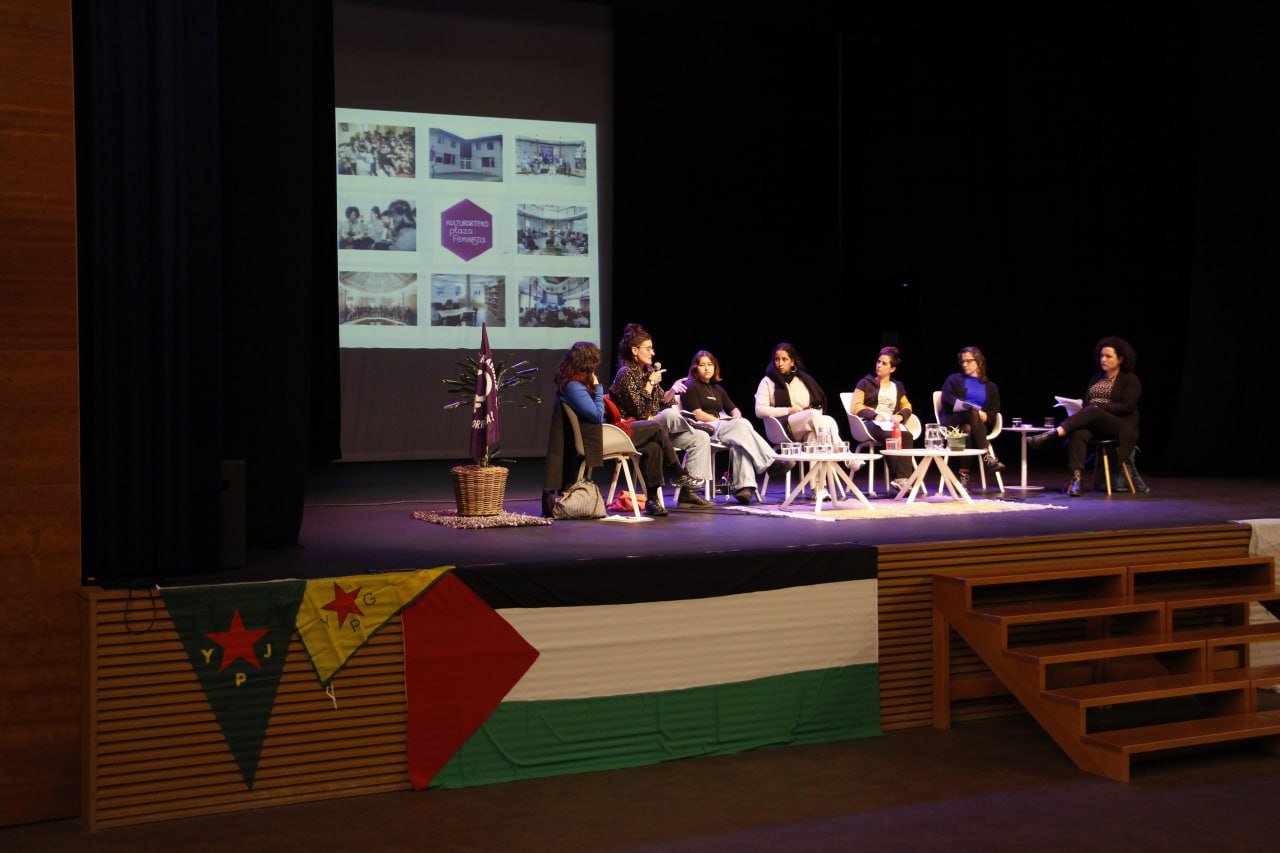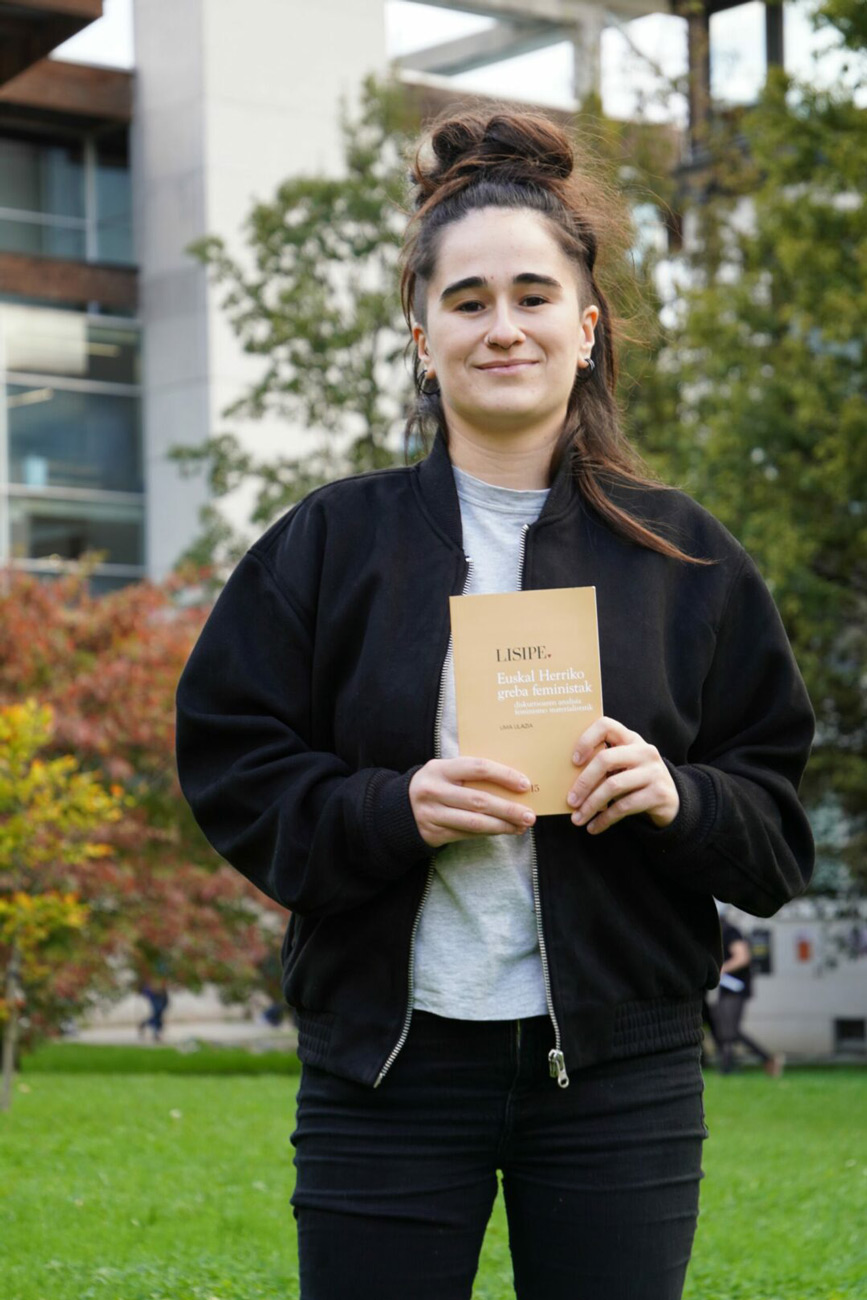Egalitarian festivities, a dream not achieved
- Parties, as an expression of society, are also a reflection of the sexist oppression and discrimination that occur in daily life. Physical attacks are expressions that are extreme from other situations that go unnoticed. The transformation of festivities, although urgent, has an obstacle before it: the weight of tradition.
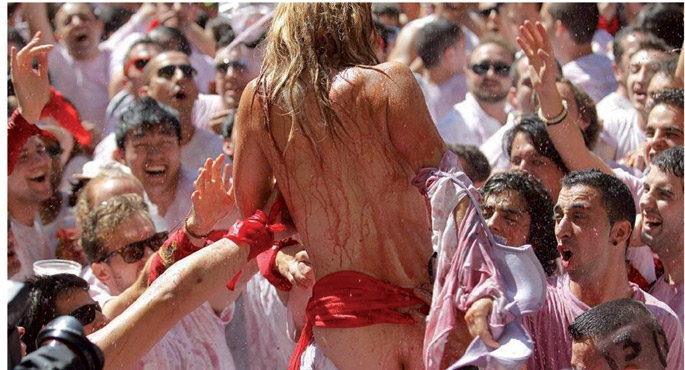
The ashes of the San Juan fires would be extinguished. The rockets have risen up here and there, and they've already started to wear scarves around the neck. The festival has already taken part in many parts of our geography and will soon receive many more. Suddenly, during parties, a message announces a violation. And behind the banners “Jaietan sexismorik ez” many people will meet. But before, during and after the party has been sexist.
Physical attacks are the most visible and cruel examples of the other eleven oppressions. The same is true of some particularly discriminatory festivities such as the Irun and Hondarribia scares or the Baztan mutil-dantza. They have drawn attention and provoked the response, but they are not the only ones. Parity, in general, is still not rooted in the whole holiday space. In fact, these are “the tip of the iceberg”, according to Maggie Bullen, professor of social anthropology at the UPV/EHU, “below which is the base of the system”.
This system is the same that governs daily life, guaranteeing and perpetuating inequalities between men and women. And what happens among the people, also happens in the sphere of the party, because according to Bullen the camp is a reflection of society. In the same sense is pronounced Saioa Iraola, by Bilgune Feminista: “Parties are condensed indicators of reality. They reflect the identity of the people and the structure of society.” Therefore, there are as many aggressions and oppressions as there are in daily life. However, parties make the situation even more visible. And the touches, sexist comments and the like are exposed.
But parties have another particularity. They are a showcase of claim in the Basque Country. Thus, citizens have used the party to criticize power or to represent another order, using parody or mask to do so. That is why, according to Bullen, the party is a reflection of society, but a “distorted reflex”. In fact, at the party “the established order is reversed, we alter the routine of our daily lives”. The paradox is that the powers of the moment have been criticised, but this distortion has not been used to revolutionize the gender system as well. The gender order could be torn apart, but it has been reproduced. Differences have persisted, mimicking the rest of society.
At the same time, the tendency to resist the established order and break in the festivities has been confused in some cases with the myth of “everything is worth”. Perhaps the Sanfermines in Pamplona are the clearest example of this. The party has been presented as a framework that allows everything to be done. This, coupled with the gender system, is a dangerous cocktail. This cocktail is due to the images that last year filled the newspapers' covers and that the men's group taught women to play and to take off their clothes. The mayor of Pamplona, Enrique Maia, did not want to describe it as “aggression”.
The possibilities of enjoyment are not the same
Today, women and men do not have equal opportunities to enjoy the party. Iraola uses an image to describe the situation: “Washing machines don’t work on their own, nor do they smell them.” In other words, “activities that support parties” remain in the hands of women.
It's not just that. There is no more than looking at the squares to see who occupies the center of the festivities. Iraola has a long list: “In the plazas there are harrijasotzailes, aizkolaris, pelotaris, dulzaineros, charangas, concerts, bulls... Men are the protagonists of all these initiatives, as are the majority of the audience.”
However, this type of discrimination has been relegated to the background. It seems that society has naturalized them. We are not surprised to see on stage groups of empty men in a series of concerts, one after the other. These are situations that have become invisible; the iceberg, again. Bullen explains the situation with everyday examples: “As we’re used to, we don’t have a situation of oppression. We think it’s ‘normal’ that girls wear their skirt and boys don’t. We see ‘natural’ that boys are muscular and girls, thin. On television we are not struck by the fact that female presenters have their eyes painted and men do not. And it is not uncommon for the World Cup to be filled with men our screens, newspapers and interviews, the days go by and the days come.”
But, as in the previous examples, the situations of discrimination given at parties are not normal, but a consequence of the constructed gender system. According to Iraola, the festivities “reproduce the social order and reinforce the images of hegemonic men and women”.
But not everything is such a black picture. As Iraola has reported, the feminist movement is working with different commissions and organizers so that parties can be changed in their wake. According to him, “the attempt to make the festivities more participatory and egalitarian is not only the responsibility of the feminists, but of all the people and organizers of the parties”.
In Iruñea, in the same way, workshops have been organized for feminist self-defense Gora Iruñea! platforms for popular festivities and the Women's Platform against Sexist Violence, so that women can defend themselves against potential aggressions. Initially, three workshops were organised, but finally five had to be offered, in view of the demand. In total, more than 100 women have participated. The figure expresses women's concern and fear, but according to Idoia Arraiza, an expert in feminist self-defense and workshop producer, it has its positive side: “These women could stay in their homes, without daring to go out into the street at the mercy of fear. But they have decided no and take a step, a step full of determination.” The workshops, the awareness, the identification of sexual assaults and, above all, the self-esteem of women, have emphasized.
The burden of tradition
In any case, Arraiza, like Iraola, believes that we must get involved beyond women because “it is everyone’s responsibility” to transform the festivities. But transforming the party means transforming tradition. And even today, the burden of tradition is heavy.
Bullen recognizes that “it is difficult to change the things we love.” And that is that, in his opinion, traditions are “embedded in our experiences, connected with emotions and memories.” Along the same lines, Iraola has been convinced that “we are afraid of change.”
In any case, both of them are clear that every tradition is changing. Moreover, they believe that change is an inherent element of tradition. According to Bullen, “traditions are maintained because they are changing. If not, they would disappear and stay in the museum.” And he considers that it is vital to be aware of this if you want to change the parties: “Traditions are invented by human beings.”
Likewise, Iraola points out that “although we understand tradition as something monolithic, tradition is an act that is born at a given moment” and, therefore, created based on the values and beliefs of a given context and time. Tradition, therefore, is built and everything that is built can be deconstructed and rebuilt in another way.
For Bullen there is an example of the above: "The association of the Alarde del Moro de Antzuola was concerned that there was no relief from the young and that they saw that they could disappear. In addition, Mairua's role was outdated and they began to receive some criticism. To cope with this situation, a diagnosis was made, and one of the main results was that the history being represented was not real, but invented. When citizens understood that it was not real, they felt free to make changes, to adapt that story invented by their ancestors to the current reality”, assured their survival after the renewal of the Alarde.
Parties will also have to change in order to ensure survival and to ensure that all those who participate have equal comfort and participation. From the organizers to the last town, “the preparation and development of the festivities has to become a conscious process,” according to Iraola. Careful choice of programmes, division of labour and prevention of aggression will be urgent issues in order to achieve equal feasts.
In fact, the party has a great natural potential, a golden value: “They are related to social cohesion,” according to Bullen. And the real cohesion of society is impossible to dispense with half of the population. On the other hand, “parties reproduce collective identity, saying ‘we are so’ out”. Therefore, to the extent that society and parties do not change, we will continue to say “we are a sexist society”. To those outside and to those out there.
Istorioetan murgildu eta munduak eraikitzea gustuko du Iosune de Goñi García argazkilari, idazle eta itzultzaileak (Burlata, Nafarroa, 1993). Zaurietatik, gorputzetik eta minetik sortzen du askotan. Desgaitua eta gaixo kronikoa da, eta artea erabiltzen du... [+]
This wedge that the announcement on the radio Euskadi to replace the bathtub with a shower encourages the commencement of the works in the bathroom of the house. A simple work, a small investiture and a great change are announced. There has been a shift in toilet trends and a... [+]
Zalantza asko izan ditut, meloia ireki ala ez. Ausartuko naiz, zer demontre! Aspaldian buruan dudan gogoeta jarri nahi dut mahai gainean: ez da justua erditu den emakumearen eta beste gurasoaren baimen-iraupena bera izatea. Hobeto esanda, baimen-denbora bera izanda ere, ez... [+]









